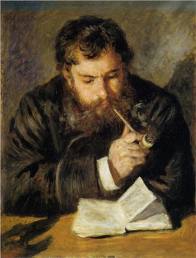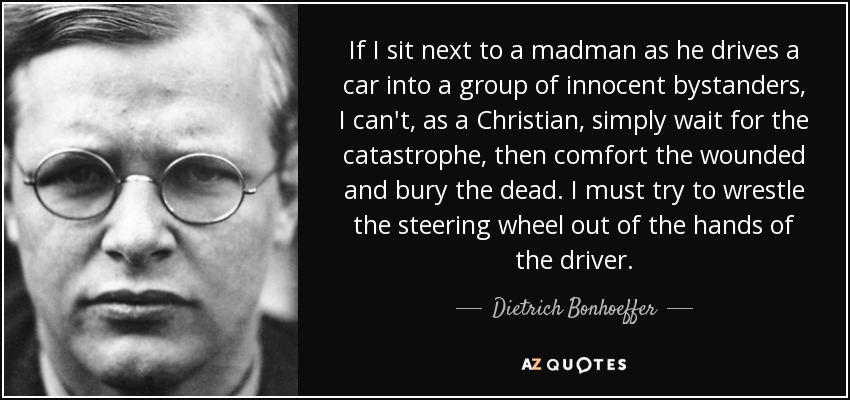 The Road to Dystopia
The Road to Dystopia
By Susan D. Harris
CLICK HERE to listen to the author read her article
With misty eyes, I will always remember my parents huddled at a garage sale, literally scraping together all the money they had to buy their youngest child a box set of encyclopedias and the classics of western literature. My mother convincing my father it was worth it, then my father proudly lugging the dusty boxes to the car . I squealed with delight and they felt fulfilled in their parental roles; though they were secretly perplexed by my enthusiasm. I was precocious in my reading, and was blessed to have parents that scrambled to meet the demands of my developing mind.
. I squealed with delight and they felt fulfilled in their parental roles; though they were secretly perplexed by my enthusiasm. I was precocious in my reading, and was blessed to have parents that scrambled to meet the demands of my developing mind.
Before 10 years of age I had already commandeered my mother’s set of Literature and Life books. I slipped away to ponder Mentresors’ revenge against Fortunato, and Prospero’s deadly masquerade ball. By the 5th grade, my parents were notified I was reading at a 1st year college
commandeered my mother’s set of Literature and Life books. I slipped away to ponder Mentresors’ revenge against Fortunato, and Prospero’s deadly masquerade ball. By the 5th grade, my parents were notified I was reading at a 1st year college level. At 15 I was reading Shakespeare – not for class assignments, but because I enjoyed it. I regularly sent for free “sample” copies of everything I could get my hands on… The Economist, Smithsonian, The Atlantic Monthly and National Review. To ensure continuous copies, I started to use a fake name. (Do not try this at home.) I kept this from my parents until the male alias I’d used to receive free samples received an official letter requiring him to report for registration with Selective Service. My sins had found me out, and I confessed to my parents, shuddering with fear that I would finally be arrested for wanting to read what I could not afford.
level. At 15 I was reading Shakespeare – not for class assignments, but because I enjoyed it. I regularly sent for free “sample” copies of everything I could get my hands on… The Economist, Smithsonian, The Atlantic Monthly and National Review. To ensure continuous copies, I started to use a fake name. (Do not try this at home.) I kept this from my parents until the male alias I’d used to receive free samples received an official letter requiring him to report for registration with Selective Service. My sins had found me out, and I confessed to my parents, shuddering with fear that I would finally be arrested for wanting to read what I could not afford.
And so I brought with me a quietly humble, yet advanced level of comprehension when I embraced a circle of friends that would introduce me to new authors and new philosophies. Most importantly was Jean Paul Sartre. From there I strung along with the crowd like the last person in The Loco-Motion dance train , following them to Franz Kafka, Simone de Beauvoir, Ayn Rand and the philosophy of Hegel.
, following them to Franz Kafka, Simone de Beauvoir, Ayn Rand and the philosophy of Hegel.
To me, it was like walking into the ominous ambience of Prospero’s black room with the red windows . I tried to act enlightened. How anyone could prefer Being and Nothingness over Democracy in America
. I tried to act enlightened. How anyone could prefer Being and Nothingness over Democracy in America confounded me. I listened in silence to passionate discussions of the genius of those authors. Inside I was squirming. It was, to be frank, the biggest bunch of nonsense I’d ever heard or read. When I reached college, I met a kindred spirit in Plato and a playful debater in Socrates. I returned again and again to the Bible of my youth, and a man named Jesus. Once embarrassed to voice my supposedly unlearned opinion on existentialist authors and the Hegelian dialectic, I eventually concluded that they had done to Western thought what Picasso had done to art: They’d rejected traditional techniques of perspective, jumbled everything up, and narcissistically expected everyone to proclaim their works revolutionary masterpieces. And throngs of their followers did just that; heaping
confounded me. I listened in silence to passionate discussions of the genius of those authors. Inside I was squirming. It was, to be frank, the biggest bunch of nonsense I’d ever heard or read. When I reached college, I met a kindred spirit in Plato and a playful debater in Socrates. I returned again and again to the Bible of my youth, and a man named Jesus. Once embarrassed to voice my supposedly unlearned opinion on existentialist authors and the Hegelian dialectic, I eventually concluded that they had done to Western thought what Picasso had done to art: They’d rejected traditional techniques of perspective, jumbled everything up, and narcissistically expected everyone to proclaim their works revolutionary masterpieces. And throngs of their followers did just that; heaping praises upon kings that had no clothes.
praises upon kings that had no clothes.
I continued to collect books. One discarded library book I picked up on a whim was titled, SDS: The Rise and Development of the Students for a Democratic Society by Kirkpatrick Sale. I always had a nagging urge to figure out why American culture imploded in the 1960’s, besides the obvious influence of the Vietnam War. I could never get my head around the SDS or their motivations. (Little did I know they would provide the backbone of a Progressive movement that would overtake the country.)
to collect books. One discarded library book I picked up on a whim was titled, SDS: The Rise and Development of the Students for a Democratic Society by Kirkpatrick Sale. I always had a nagging urge to figure out why American culture imploded in the 1960’s, besides the obvious influence of the Vietnam War. I could never get my head around the SDS or their motivations. (Little did I know they would provide the backbone of a Progressive movement that would overtake the country.)
There was a missing link and I couldn’t put the chain together – at least not until a contemporary of Sartre’s named Saul Alinsky came into my life. Ah, now I’d come to what Ibsen called, “the serious part of the frolic.” Alinsky’s methods and Rules for Radicals took all the darkness of existentialism and turned it into a blueprint for action. (Hillary Clinton’s thesis acknowledged that Alinsky himself accepted the label “existentialist.”)
Eventually I watched an old 1967 episode of Firing Line where William F. Buckley Jr. interviewed Alinsky in a show titled, Mobilizing the Poor.” To conservative political geeks it was a nearly “orgasmic” (as Limbaugh would say) ideological smack down as Buckley played the master chess player, anticipating his opponent’s strategy and blocking every move. I nearly had a cigarette afterward.
the Poor.” To conservative political geeks it was a nearly “orgasmic” (as Limbaugh would say) ideological smack down as Buckley played the master chess player, anticipating his opponent’s strategy and blocking every move. I nearly had a cigarette afterward.
Now things were coming together. The Progressive worldview, and the Libertarian, Rand-worshipping worldview — are all part of the same existentialist family tree containing Sartre and Alinsky. Rand’s humanistic objectivism is as cold and Godless as Sartre’s humanistic existentialism. These pseudo-intellectuals are the reason Christianity has been quietly erased line by line, year after year in the popular psyche. God was dead to Nietzsche, Sartre and Ayn Rand; and we all know Alinsky dedicated Rules for Radicals to Lucifer. Even Sartre’s famous cousin, Albert Schweitzer, denied the divinity of Christ. They were simply players in a full-court press for a total paradigm shift that has led us to the Mad Max dystopian hellhole upon which we are now teetering.
For the last forty years, parents who raised their children with Christian values increasingly saw them usurped on college campuses with more socially acceptable ideas of karma or Taoism, atheism or paganism — or some eclectic hybrid “spirituality” picked from a smorgasbord of world religions.
Like our religion, our politics has become one large stew assembled from an array of ingredients no one remembers – an amnesia that could be our undoing. In a desperate attempt to save the country, we find ourselves desperately cherry picking from various ideologies to accomplish whatever our goal is on any given day. We are becoming a nation of lost souls passionately proclaiming our oxymoronic beliefs at home and abroad.
When all is said and done, the “huddled masses” don’t really know or care where they got their views, or the origins of their trickle-down philosophies. As for our leaders on Capitol Hill, there are very few who adhere to any solid political philosophy, and even fewer that believe they answer to a higher power.
The original impetus of a Conservative worldview rooted in the Judeo-Christian ethic is being replaced by a Libertarianism that lacks Biblical morality; and makes no apologies for doing so. Worse yet, despite Conservatism’s firm moral foundation and a historically intellectual superiority over competing ideologies; it wasn’t able to stop an ideologically inferior Alinsky trained robot from becoming the leader of the free world. That is why a complete overhaul of Conservatism is currently underway. Initiated by groups like the Tea Party, only time will tell if this embattled reconstruction will be successful and quick enough to turn the tide of history.
In the end, my “book learning” has been both a blessing and a curse.
For in much wisdom is much grief: and he that increaseth knowledge increaseth sorrow. (Ecclesiastes 1:18)
My quest for knowledge led me to an answer that I and millions of Americans already inherently know: That those unpretentious souls who lived in centuries past, plowing by day and reading the Bible by lantern light — had a deeper and more correct understanding of their role as “community organizers,” their purpose on earth, and the very meaning of life itself — than any Sartre, Rand, Hegel or Alinsky could ever have.
We search the world for truth;
We cull the good, the pure, the beautiful,
From all old flower fields of the soul;
And weary seekers of the best,
We come back laden from our quest,
To find that all the sages said,
Is in the book our mothers read. ~ John Greenleaf Whittier
Published in: http://www.americanthinker.com/2013/09/the_road_to_dystopia.html#ixzz2dgkGR1Jj Follow us: @AmericanThinker on Twitter | AmericanThinker on Facebook
RELATED MATERIAL:
ARVE Error: need id and providerARVE Error: need id and provider
ARVE Error: need id and provider


